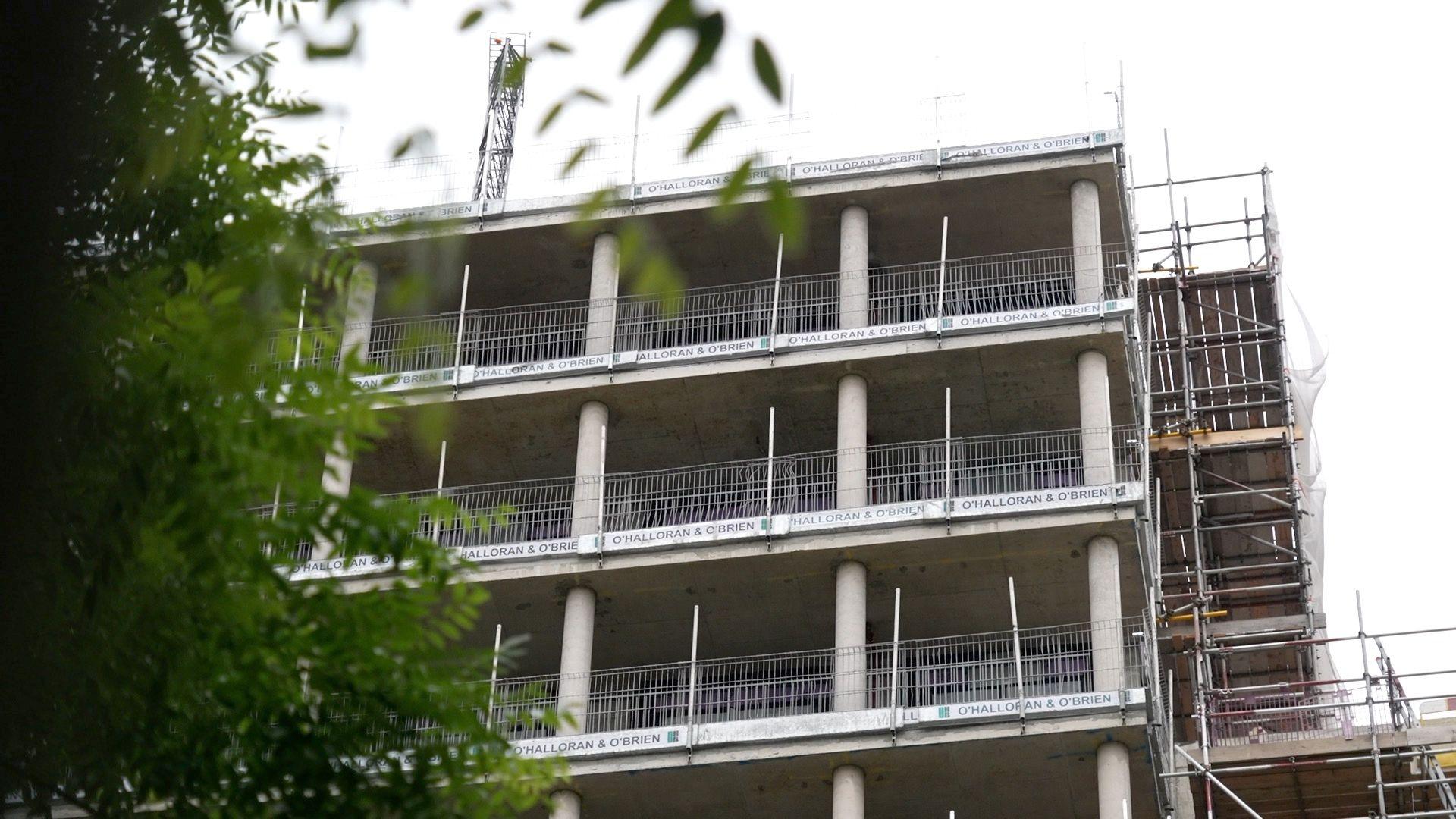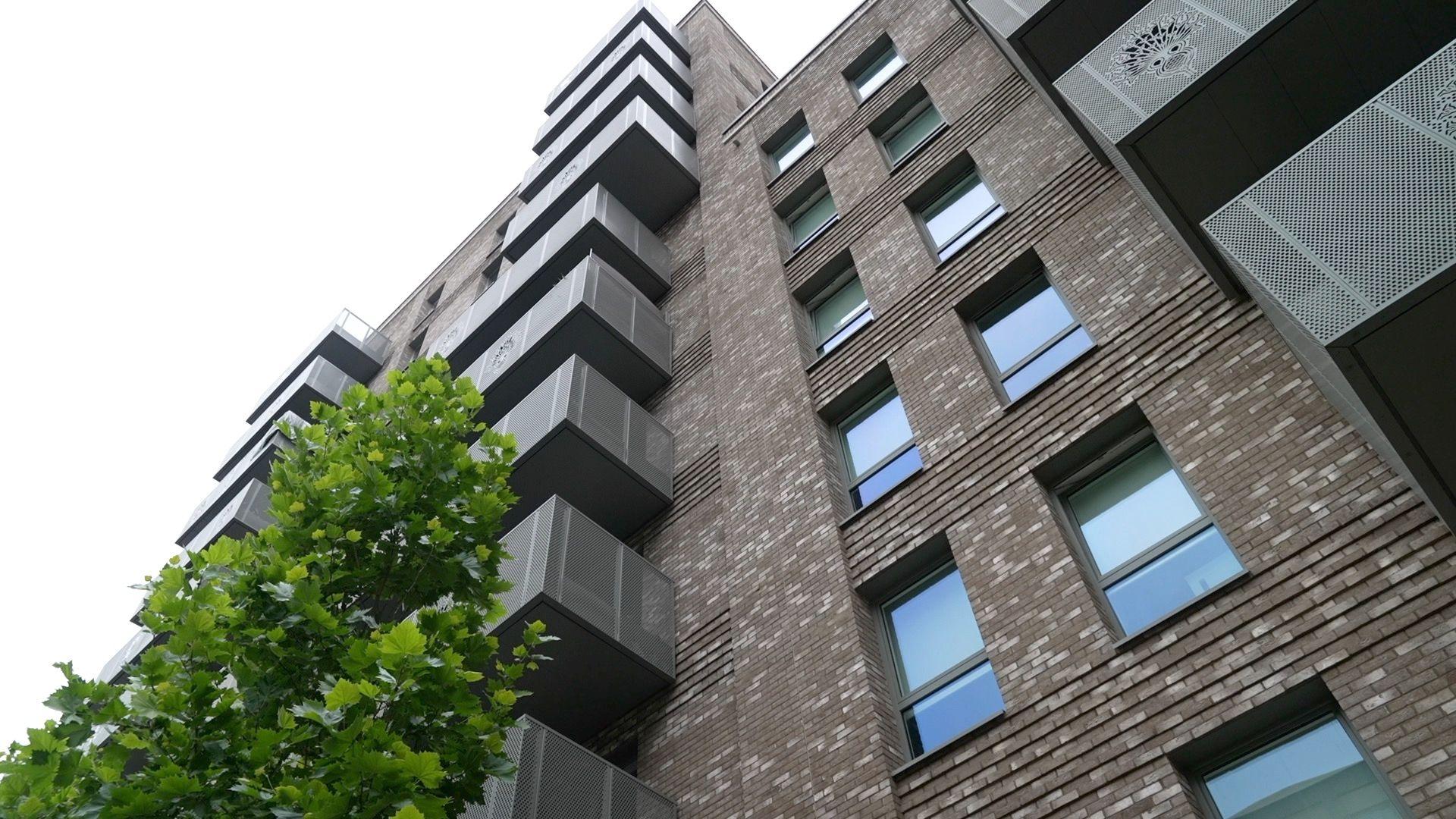Housing crisis 'both a social and economic' issue

A lack of housing in the capital leads to high unemployment, businesses have said
- Published
Investing in housing, transport and people should be the top priorities for the capital, business leaders have said ahead of next week's government Spending Review.
John Dickie, chief executive of Business LDN, an organisation that represents a number of employers in the city, said Transport for London (TfL) needed a long-term financial settlement so it could "plan with confidence".
He also said the housing crisis needed to be addressed, which in turn would help reduce unemployment.
The lack of affordable homes in the city was "not just a social issue", he said, but was holding back the economy.

John Dickie says "imagination and innovation" are needed to tackle the housing crisis
Mr Dickie said London currently had the highest unemployment rate in the country, and Londoners should be given the skills they need to get into work.
"It means investing in people and in the jobs of the future. Perhaps most importantly, we need investment into housing.
"Housing is not just a social crisis in London, it's also holding back the economy. It's harder for businesses to keep and then retain their staff.
"The sheer cost of getting a house - whether renting or trying to get on the housing ladder - makes it hard for businesses to attract and retain the talent they need."
He said "a bit more imagination, a bit more innovation" was needed.
"There are multiple impacts - the most obvious is the cost and how it makes it harder to attract and retain talent, but also the stress that employees face from uncertain or precarious rental arrangements."
Rental prices in London are still rising, according to Matt Hutchinson, from the flat-share site SpareRoom.
"We never see sustained decreases taking rents down to affordable levels," he said.
"While there are more people searching for somewhere to live than rooms available, rents will keep heading north – along with renters."
He said a March 2025 survey indicated 28% of renters were spending more than half their take-home pay on rent, while 80% were spending more than 30%.
He added that workers were moving out of the capital to the "relative affordability" of the suburbs.
"It might be fine for knowledge workers who can do their jobs from their laptops, but for service workers and those who work shifts and antisocial hours, and who need to be close to their places of work, this is a huge problem."

Peabody is a not-for-profit housing association
One of those people who felt forced to leave is Jason Phillips, who lived in Crouch End for a decade before moving to Stevenage in Hertfordshire.
The 60-year-old said his London home had been sold by the owner and he looked for a new place to rent for more than a year, viewing about 40 properties.
He said property agencies told him everyone attending their viewings "was in a bidding war and that the only way to win was either to offer more than the advertised rent or to offer to be tied into multi-year contracts.
"One agent suggested both was the best tactic."
Mr Phillips said a two-bed flat in Crouch End on the market for £1,800 a month eventually went to a tenant willing to pay £2,500 a month on a 30-month rental contract.
He now lives in a three-bedroom house with a monthly rent of £2,075.

CEO of Peabody Ian McDermott described the situation as "utterly dire"
Ian McDermott, CEO of the Peabody housing association and the chair of the G15 - a group of housing associations in London - said rent certainty was the most important issue that should be addressed in the Spending Review.
He said the government should consider housing to be core infrastructure for the country, and that housing should be viewed "not as debt but as an asset".
"The situation is utterly dire - one in 21 children in London will go to sleep tonight in temporary accommodation.
"The scale of the of the temporary housing is astronomical and threatens the financial viability of councils across London."
Listen to the best of BBC Radio London on Sounds and follow BBC London on Facebook, external, X, external and Instagram, external. Send your story ideas to hello.bbclondon@bbc.co.uk, external